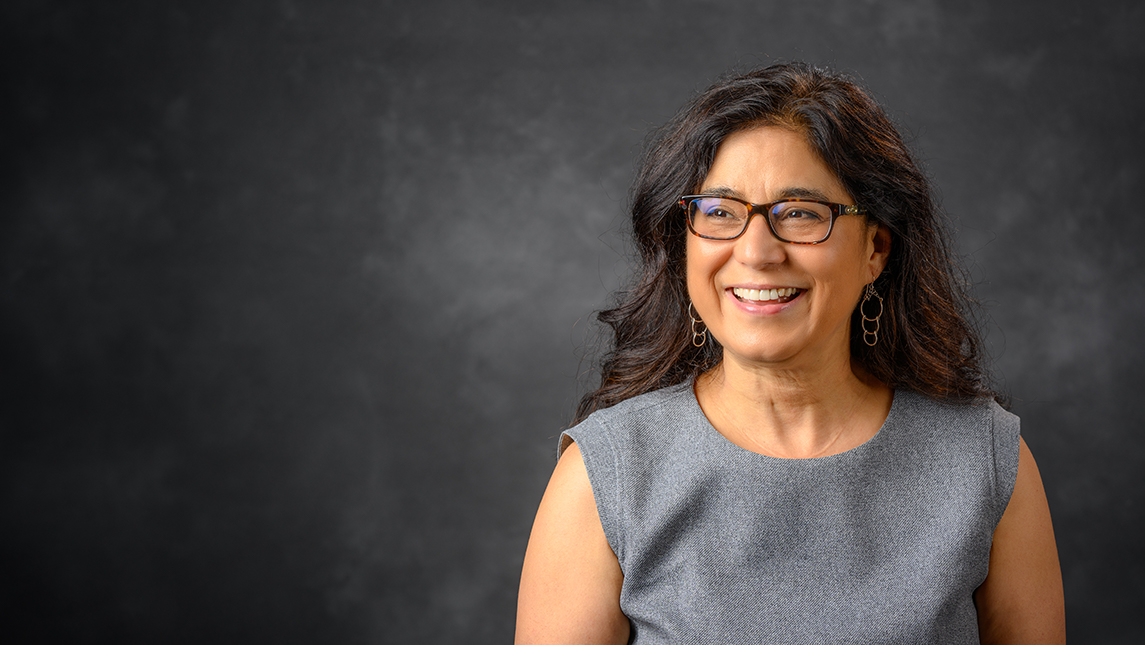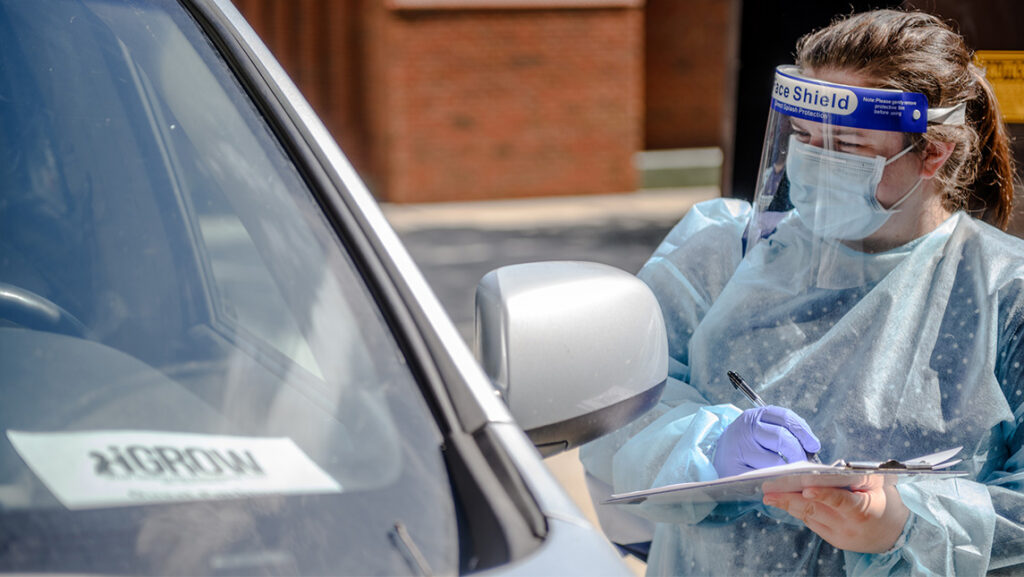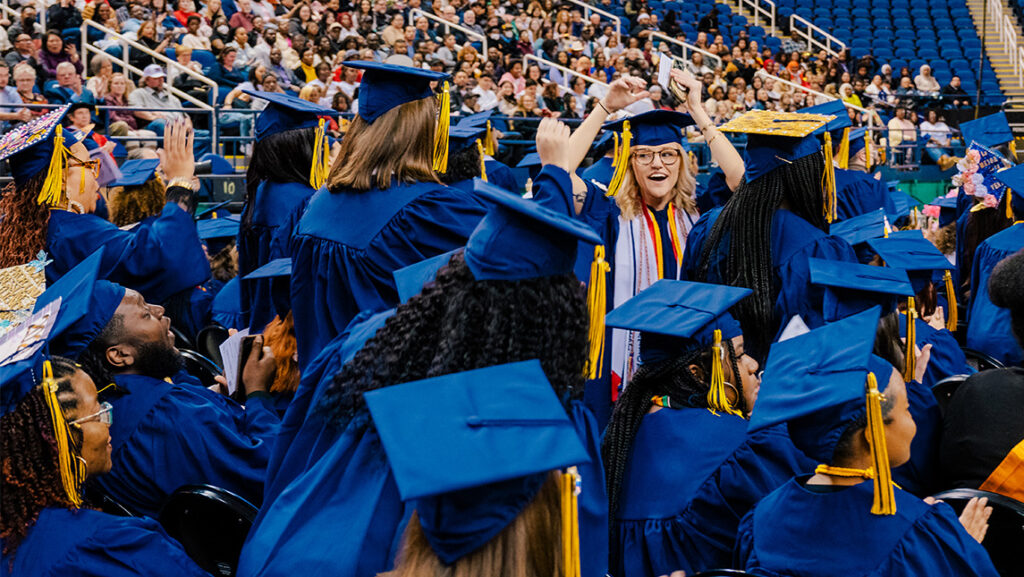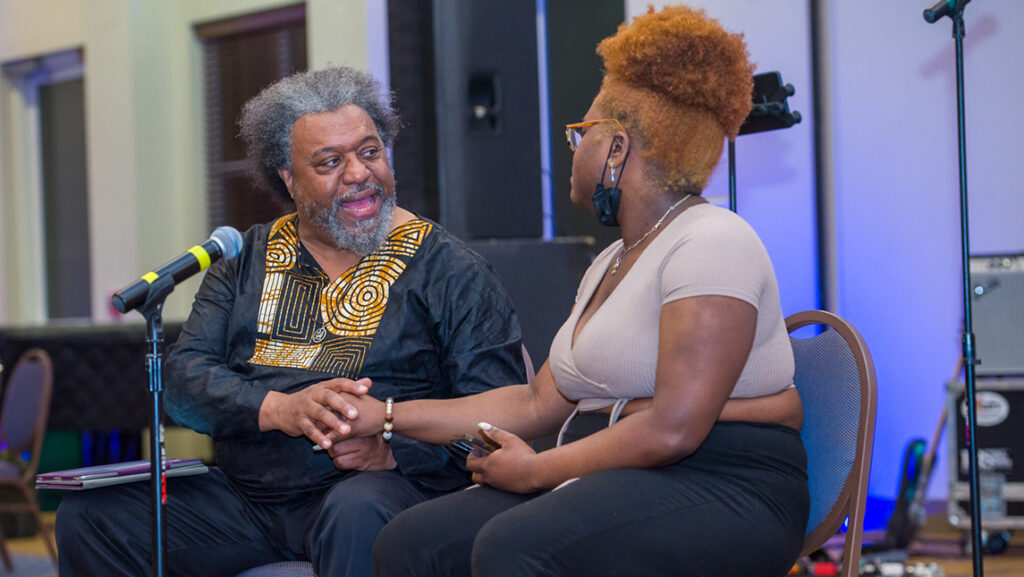
Dr. Debbie Storrs has a thirst for discovering how the world is not always as it seems. That’s the sociologist in her, and she’s using this mindset as a mechanism to contribute to knowledge, access, equity, and social justice.
“I’ve discovered how I can impact the world through learning, teaching, and engaging in research, particularly community action research,” says Storrs.
Throughout her 24 years of experience in higher education, Storrs has embraced teaching and research. While she didn’t intentionally pursue leadership roles, she found that she had a competency in helping, supporting, and empowering others. As more leadership opportunities presented themselves, she felt called to contribute her skills to empower the next generation of future leaders in higher education.
Before coming to UNC Greensboro, Storrs served as the interim provost and vice president for academic affairs at the University of North Dakota (UND), where she helped lead academic affairs through its COVID-19 response. She facilitated efforts across UND to provide high-quality, innovative educational programs and prioritized student success. Storrs also helped lead the development and execution of the UND Strategic Plan.
Storrs joined the University of North Dakota in 2013, serving as dean of the College of Arts & Sciences for five years before her appointment as senior vice provost. She previously worked at the University of Idaho where she joined as an assistant professor and rose through the ranks to professor, serving as interim department chair and associate dean. A first-generation college student, Storrs earned a B.A. in sociology with a minor in psychology from the University of Alaska, and an M.S. and Ph.D. in sociology from the University of Oregon.
Storrs’ first day as provost was June 30, and, as the new academic year begins, she is excited to help lead and serve the Spartan community.
“My first commitment remains to the student experience, ensuring all students have the opportunity to dream, pursue, succeed, and live fulfilled lives. I wake up every day with pride knowing that my work in higher education and my part in supporting students, faculty, staff, deans, directors, and others significantly impacts lives, creates opportunities, contributes to positive change, and, in the process, transforms students, their families, and their communities.”
Learn more about Provost Storrs in the Q&A below:
Why UNCG?
UNCG drew my attention because of its mission, its student body, the quality of faculty and academic programs, the true focus on student access and success, and Chancellor Gilliam’s commitment to equity, diversity, and inclusion, which is important to me both personally and professionally. In other words, there isn’t just one thing that drew me to UNCG – many characteristics make this institution stand out from others. I’ve learned in my short time here that many others on campus have similar reasons for why they joined and stay committed to UNCG. My time here has confirmed that there is widespread commitment towards shared goals, with a real focus on inclusion and student experience, integrated with an engagement in research and creative activity that improves the lives of communities and individuals.
What are some of the things you want to accomplish in your first year at UNCG?
I will have a laser focus on student success. I will be working with and integrating input from faculty, staff, deans, associate deans, and department chairs as they all play significant and different roles in ensuring students successfully navigate their academic experience. As I mentioned, one of the reasons I joined UNCG is the University’s clear commitment to student access and success. UNCG is a top institution in the state of North Carolina, and I want to ensure we are doing all we can to provide the best education possible for students. I’d like to identify how we all can be more effective in supporting our common goal of student success. We need to provide folks with tools and data so they can be more strategic in their outreach and engagement with students.
What do you hope to contribute to UNCG during your tenure? What are your long-term goals?
I hope to help the institution, particularly in academic affairs, navigate and help shape the new terrain of higher education. We face a number of challenges, including a demographic shift and increased skepticism about the value of higher education. I want to help keep UNCG positioned to provide an exceptional education for our students and prepare our graduates to proudly represent UNCG and the value of higher education more broadly. More personally, I will support in a thoughtful, respectful, and inclusive manner, and I will lead with courage, compassion, and humility. I would hope we all feel a part of creating something special at UNCG as we participate, collaborate, communicate effectively, and work our way through solutions as necessary. I want us to care about each other, ourselves, and our progress. I would like all of us to be compelled to be committed to the mission of our University: developing and sharing knowledge, making opportunities a reality for all students, and graduating outstanding, skilled citizens – Spartans forever – for the community and for the state of North Carolina. I hope the opportunities we provide lead to more equity and justice in the world. I hope our discovery and learning improve the world through the unique ways that only institutions of higher education are positioned to do. For me, in practice, this means serving as a unifier, a conduit, a listener, and a decision-maker, while working with deans, department chairs and heads, faculty, staff, and students to move in the same direction that is effectively responsive to the changing landscape, including what, how, and when we adapt and move forward. In spirit, I have a passion for this work and a true belief in the talents of people empowered by opportunity and knowledge and balanced through compassion.
As a first-generation college student, and with your background as a researcher on the scholarship of teaching and learning, community action, and on the experiences of students of color in higher education, what unique experiences and expertise do you hope to bring to UNCG?
Based on my experience, I know the capacity of faculty and staff to make a difference in students’ lives, including their collegiate experience and its outcomes – particularly for students who may not initially feel like they belong in higher education. They belong at UNCG, and our people who can ensure students feel that way. It starts with faculty and staff feeling part of the purpose and appreciated, and then it extends to what we offer to students. The affirmative experiences I had through mentoring, high-impact practices such as undergraduate research, and work-study were central in developing my sense of belonging and helped me develop new skills that eventually led to graduate education. We know from research that student belonging leads to increased persistence and personal and academic success. I’d like to encourage, support, and increase the types of activities that heighten students’ sense of belonging, making it possible for them to achieve their educational dreams.
What do you envision for the future of UNCG, especially in a post-pandemic “new normal?”
While UNCG is planning a full, in-person experience this fall, the immediate “new normal” means we will still prioritize health and safety for the campus community. In doing so, we will require face coverings in the classroom and laboratories given the current COVID-19 situation and the vaccination rates in the state. The longer-term “new normal” gets back to our earlier discussion. Higher education will have a “new normal,” and UNCG’s normal will require us to collectively grapple with the challenges going forward – including enrollment challenges that are likely a result of the pandemic and students’ first year experience. The “new normal” will empower us to consider extending new ways of doing things that worked effectively during the pandemic. Longer-term, the conditions of our “new normal” will help us analyze and see clearly those things we need to reinforce and continue, and push us to explore and discover what else is possible. I see UNCG solidifying its position as the best choice for an increasing number of students, staff, and faculty to extend their journey and pursue their vocation, purpose, and calling. Our “new normal” should both push and pull us forward, and we should embrace it with enthusiasm, focus, and purpose as we continue to push the cutting edge of higher education, while also keeping an appropriate amount of caution with our enthusiasm. What is the “new normal?” It will be what we collectively make of it within the context of the social milieu in which we operate. I am excited to be part of that future and so thankful for the opportunities that have been extended to me from my early education through joining UNCG.
Anything else you want the Spartan community to know about you?
Hmm, what else would people want to know? I have a soulmate in life who also has committed a career to higher education. We are both genuinely excited for my becoming part of UNCG and the campus community and living in Greensboro, North Carolina. We have a standard poodle named Bockiee who brings joy and fun, even on those days where it can seem like there is little room for either. He, like many dogs, has an inspiring balance of caution and enthusiasm (occasionally too much enthusiasm). I have a genuine passion for my work and a healthy perspective for both the struggles and joys of daily life we all face. I enjoy the simple and the complex. I am generally pretty direct, which sometimes does not align with what people are used to, but we can nearly always work through it. I am an optimist, I recognize struggles, and I care about people. I have embraced who I am and serve and lead authentically.
Interview by Alexandra McQueen, University Communications
Photography by Martin W. Kane, University Communications


